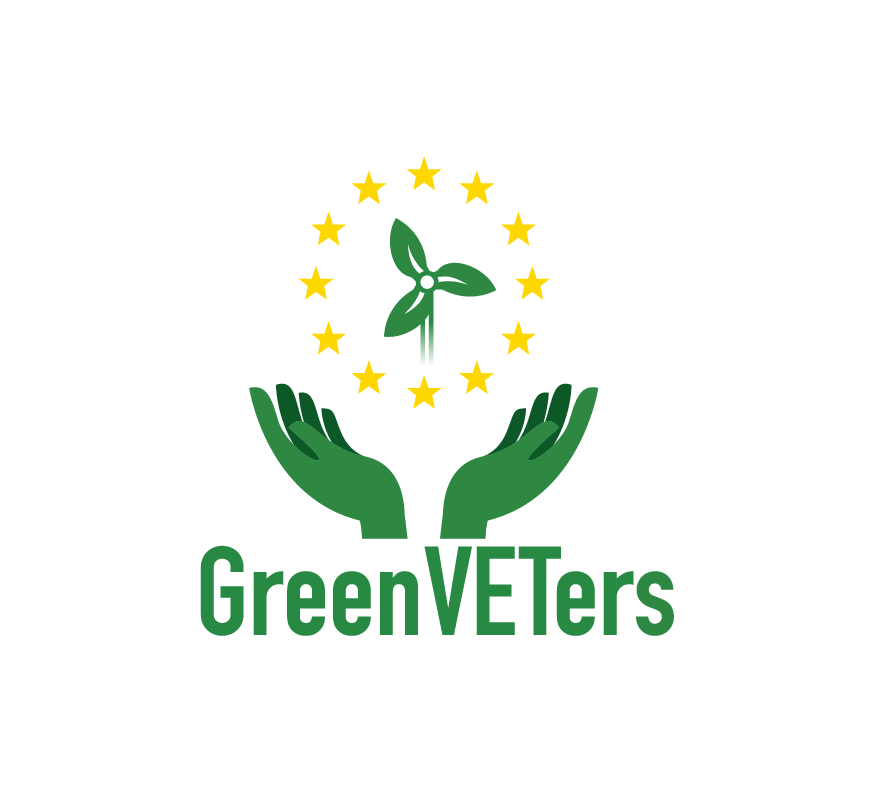Climate change is one of the most pressing challenges of our time, affecting every corner of the globe and demanding urgent action. In response to this global crisis, the United Nations formulated the Sustainable Development Goals (SDGs), a comprehensive framework to address various social, economic, and environmental issues. In our last article, we talked about the 17 SDGs. This time, we will look at SDG 13 in the context of our project, GreenVETers.
SDG 13, Climate Action, highlights the crucial need to combat climate change and its impacts. It emphasises the need for immediate and ambitious action to combat climate change and its effects. It recognises that climate change is not just an environmental concern but also a development issue with far-reaching implications for poverty eradication, food security, health, and overall well-being. The goal aims to strengthen resilience, enhance adaptive capacity, and mobilise resources to implement effective climate change mitigation and adaptation strategies.
Active citizenship is a fundamental pillar in addressing climate change. GreenVETers aims to embed citizen deliberation and deliberative democracy into the official VET curricula. This motivates young VET students to take climate action and contributes to developing sustainable and green skills in VET education. GreenVETers aspires to empower young VET students to become agents of change and take tangible steps to combat global warming.
Through the development and implementation of the project’s four outputs, the GreenVETers consortium hopes to, on the one hand, raise awareness and help both students and teachers/trainers to gain a comprehensive understanding of the urgency and gravity of the issue. The awareness grows as a catalyst for action, encouraging individuals to adopt sustainable practices in their daily lives and make informed choices that mitigate climate change. On the other hand, the project hopes to prepare them better to take action by promoting the development of sustainable skills through the outputs generated:
- The Handbook on the Green Deal and Citizen Deliberation introduces the concept of citizen deliberation and deliberative democracy to meet the Green Deal’s objectives.
- The Pedagogical Guide: ‘Citizen engagement and deliberative democracy for climate action in VET schools’ helps educators better understand the pedagogical benefits of operationalising citizen deliberation to tackle climate change in certain professions.
- The Online Training Course on Citizen Deliberation and the Green Deal for VET educators in Agriculture & Engineering, which will provide vocation-specific drivers and potential for innovation and sustainability in Agricultural and Engineering practices through exercising citizen deliberation.
- Finally, the Report on “The Way Ahead: A Collection of Good Practices”, this final output will include video testimonials and graphics after the target groups will have engaged in practical Socratic seminars with environmental policymakers.
Active citizenship for climate change involves advocating for local, national, and international policy changes. By amplifying their voices, participants become agents of change, shaping policies that prioritise climate action and environmental sustainability.
Sustainable Development Goal 13, Climate Action, is a critical agenda item in combating climate change and its far-reaching impacts. GreenVETers exemplifies the importance of individual and collective action. Participants are equipped with the tools and knowledge to drive climate action and contribute to a sustainable future through education, collaboration, capacity building, and advocacy. By participating in such GreenVETers activities and outputs and embracing active citizenship, individuals can play a significant role in achieving SDG 13 and safeguarding our planet for future generations.





